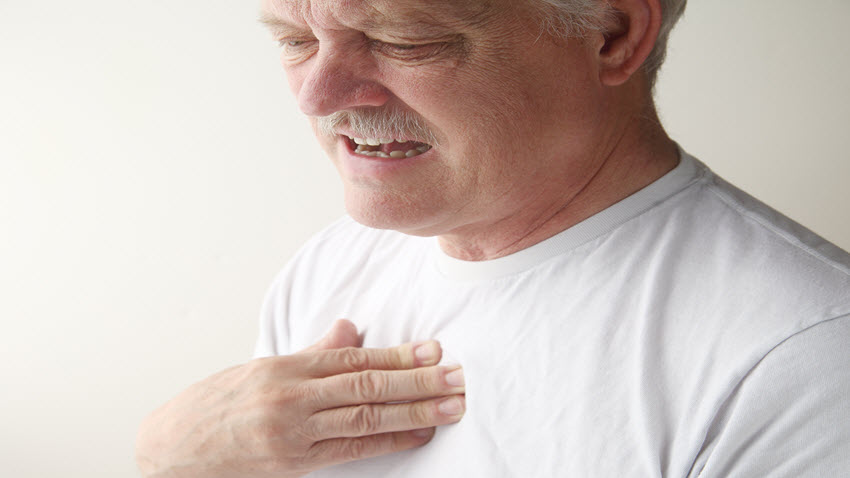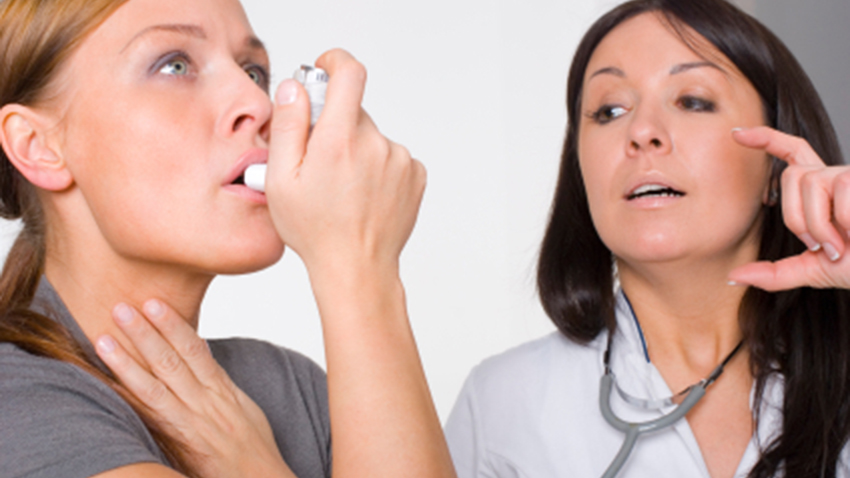COPD & Lung Health
Knowledge is Power.
True/False - Quiz: Do You Understand COPD & Lung Health?
Information - COPD & Lung Health
 Chronic obstructive pulmonary disease (COPD) is used to describe chronic lung diseases, including bronchitis, refractory (non-reversible asthma) and emphysema. COPD has many causes, including smoking and genetic factors. If you have COPD, it’s important to see your physician regularly, because the disease is characterized by flare-ups and remissions. In some cases, it affects patients silently, and it’s only later that it impacts their quality of life and leads to hospitalization or death.
Chronic obstructive pulmonary disease (COPD) is used to describe chronic lung diseases, including bronchitis, refractory (non-reversible asthma) and emphysema. COPD has many causes, including smoking and genetic factors. If you have COPD, it’s important to see your physician regularly, because the disease is characterized by flare-ups and remissions. In some cases, it affects patients silently, and it’s only later that it impacts their quality of life and leads to hospitalization or death.
Causes & Symptoms of COPD Flare-ups
Common causes of COPD flare-ups include smoking, the common cold, weather changes or changes in air pollution levels and stress. The symptoms of a COPD flare-up include:
- Cough or increasing cough
- Shortness of breath
- Tightness in the chest
- Increase or colour change in the sputum or mucus that you are coughing up
- Excessive fatigue
- Blue lips or fingers
It’s recommended that patients with COPD see their physician at least twice a year. Your physician can help you renew your medication, discuss what you’re doing to prevent and treat flare-ups.
COPD Diagnosis & Treatment
While there’s no cure for chronic obstructive pulmonary disease, if treated early and appropriately, many patients can maintain a good quality of life. The majority of cases of COPD are directly related to cigarette smoking, so by quitting smoking, you can reduce or prevent symptoms.
To diagnose COPD, your physician may perform:
- Lung function tests
- A chest x-ray
- An arterial blood gas analysis
- A CT scan
 If you are diagnosed with chronic obstructive pulmonary disease, your doctor may prescribe:
If you are diagnosed with chronic obstructive pulmonary disease, your doctor may prescribe:
- Bronchodilators or combination inhalers
- Inhaled or oral steroids
- Phosphodiesterase-4 inhibitors (for severe COPD or chronic bronchitis)
- Antibiotics for respiratory infections
- Oxygen therapy
Patients with some forms of severe emphysema who aren't helped by medications alone may be candidates for surgery, including a bullectomy or lung transplant. People living with COPD may benefit from lifestyle changes such as regular exercise, a healthy diet to lose weight, relaxation techniques, and avoiding polluted places.
Talk to your family physician if you'd like more information on COPD.
Visit HealthChoicesFirst.com for more videos and resources on family health.
Print this Action Plan and check off items that you want to discuss with your healthcare provider
-
Chronic obstructive pulmonary disease (COPD) is used to describe chronic lung diseases, including bronchitis, refractory (non-reversible asthma) and emphysema. COPD has many causes, including smoking and genetic factors.
-
Common causes of COPD flare-ups include smoking, the common cold, weather changes or changes in air pollution levels, and stress.
-
The symptoms of a COPD flare-up include cough, shortness of breath, tightness in the chest, increase or colour change in the sputum or mucus that you are coughing up, excessive fatigue and blue lips or fingers.
-
If you are diagnosed with chronic obstructive pulmonary disease, your doctor may prescribe bronchodilators or combination inhalers, inhaled or oral steroids, phosphodiesterase-4 inhibitors, antibiotics for respiratory infections or oxygen therapy.



